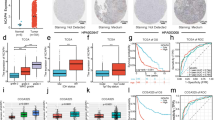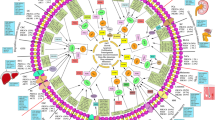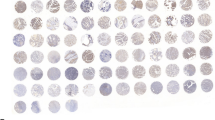Abstract
The tumor suppressor p53-mediated apoptotic response plays an important role in cisplatin resistant in ovarian cancer. The adenovirus (Ad) type 12 E1B 55-kDa protein binds to p53 and inactivates its transcriptional transactivation function. In this study, we test the hypothesis that Ad12 E1B 55-kDa oncoprotein promotes p53-mediated apoptotic response of ovarian cancer to cisplatin. First, we observed the upregulation protein level of p53 target genes in cisplatin-resistant or cisplatin-sensitive ovarian cancer by Western blotting. Second, after transfection of Ad12 E1b 55-kDa expression plasmid, the expressions of p53 target genes in A2780 cells were further enhanced. Co-IP experiment demonstrated Ad12 E1b 55 kDa associated with p53. MTT assay confirmed that the cell proliferation was enhanced after transfection, as well as the enhanced cell inhibitory rate in the presence of cisplatin. Using flow cytometry, transfection of Ad12 E1B 55-kDa protein induced apoptosis and promoted S-phase transition in proliferation. Finally, results showed that all these changes promoted by Ad12 E1b 55 kDa were attenuated by the exposure of specific inhibitor of p53 signaling, pifithrin-α. Taken together, we concluded that Ad E1B 55-kDa oncoprotein promotes p53-mediated apoptotic response of ovarian cancer to cisplatin.






Similar content being viewed by others
Change history
21 December 2021
This article has been retracted. Please see the retraction notice for more detail: https://doi.org/10.3233/TUB-219010"
References
Ji T, Gong D, Han Z, Wei X, Yan Y, Ye F, et al. Abrogation of constitutive stat3 activity circumvents cisplatin resistant ovarian cancer. Cancer Lett. 2013;341:231–9.
Yen MS, Juang CM, Lai CR, Chao GC, Ng HT, Yuan CC. Intraperitoneal cisplatin-based chemotherapy vs. intravenous cisplatin-based chemotherapy for stage III optimally cytoreduced epithelial ovarian cancer. Int J Gynaecol Obstet Off Organ Int Fed Gynaecol Obstet. 2001;72:55–60.
Hogberg T. Chemotherapy: current drugs still have potential in advanced ovarian cancer. Nature Rev Clin Oncol. 2010;7:191–3.
Marsh S. Pharmacogenomics of taxane/platinum therapy in ovarian cancer. Int J Gynecol Cancer Off J Int Gynecol Cancer Soc. 2009;19 Suppl 2:S30–34.
Chien JR, Aletti G, Bell DA, Keeney GL, Shridhar V, Hartmann LC. Molecular pathogenesis and therapeutic targets in epithelial ovarian cancer. J Cell Biochem. 2007;102:1117–29.
Cheng JQ, Jiang X, Fraser M, Li M, Dan HC, Sun M, et al. Role of x-linked inhibitor of apoptosis protein in chemoresistance in ovarian cancer: possible involvement of the phosphoinositide-3 kinase/akt pathway. Drug Resis Updates Rev Comment Antimicrob Anticancer Chemotherapy. 2002;5:131–46.
Koch M, Krieger ML, Stolting D, Brenner N, Beier M, Jaehde U, et al. Overcoming chemotherapy resistance of ovarian cancer cells by liposomal cisplatin: molecular mechanisms unveiled by gene expression profiling. Biochem Pharmacol. 2013;85:1077–90.
Galluzzi L, Senovilla L, Vitale I, Michels J, Martins I, Kepp O, et al. Molecular mechanisms of cisplatin resistance. Oncogene. 2012;31:1869–83.
Hajra KM, Tan L, Liu JR. Defective apoptosis underlies chemoresistance in ovarian cancer. Adv Exp Med Biol. 2008;622:197–208.
Fraser M, Leung BM, Yan X, Dan HC, Cheng JQ, Tsang BK. P53 is a determinant of x-linked inhibitor of apoptosis protein/akt-mediated chemoresistance in human ovarian cancer cells. Cancer Res. 2003;63:7081–8.
Burger H, Loos WJ, Eechoute K, Verweij J, Mathijssen RH, Wiemer EA. Drug transporters of platinum-based anticancer agents and their clinical significance. Drug Resis Updates Rev Comment Antimicrobial Anticancer Chemotherapy. 2011;14:22–34.
Ahmad S. Platinum-DNA interactions and subsequent cellular processes controlling sensitivity to anticancer platinum complexes. Chem & Biodiver. 2010;7:543–66.
Li J, Wood 3rd WH, Becker KG, Weeraratna AT, Morin PJ. Gene expression response to cisplatin treatment in drug-sensitive and drug-resistant ovarian cancer cells. Oncogene. 2007;26:2860–72.
Liu Y, Colosimo AL, Yang XJ, Liao D. Adenovirus e1b 55-kilodalton oncoprotein inhibits p53 acetylation by pcaf. Mol Cell Biol. 2000;20:5540–53.
Gottlieb TM, Oren M. P53 in growth control and neoplasia. Biochim Biophys Acta. 1996;1287:77–102.
Liao D, Yu A, Weiner AM. Coexpression of the adenovirus 12 e1b 55 kda oncoprotein and cellular tumor suppressor p53 is sufficient to induce metaphase fragility of the human rnu2 locus. Virology. 1999;254:11–23.
Zhao LY, Liao D. Sequestration of p53 in the cytoplasm by adenovirus type 12 e1b 55-kilodalton oncoprotein is required for inhibition of p53-mediated apoptosis. J Virol. 2003;77:13171–81.
Zhao LY, Colosimo AL, Liu Y, Wan Y, Liao D. Adenovirus e1b 55-kilodalton oncoprotein binds to daxx and eliminates enhancement of p53-dependent transcription by daxx. J Virol. 2003;77:11809–21.
Kao CC, Yew PR, Berk AJ. Domains required for in vitro association between the cellular p53 and the adenovirus 2 e1b 55 k proteins. Virology. 1990;179:806–14.
Sarnow P, Ho YS, Williams J, Levine AJ. Adenovirus e1b-58kd tumor antigen and sv40 large tumor antigen are physically associated with the same 54 kd cellular protein in transformed cells. Cell. 1982;28:387–94.
Yew PR, Kao CC, Berk AJ. Dissection of functional domains in the adenovirus 2 early 1b 55 k polypeptide by suppressor-linker insertional mutagenesis. Virology. 1990;179:795–805.
Yew PR, Berk AJ. Inhibition of p53 transactivation required for transformation by adenovirus early 1b protein. Nature. 1992;357:82–5.
Yew PR, Liu X, Berk AJ. Adenovirus e1b oncoprotein tethers a transcriptional repression domain to p53. Genes Dev. 1994;8:190–202.
Steegenga WT, Van Laar T, Shvarts A, Terleth C, Van der Eb AJ, Jochemsen AG. Distinct modulation of p53 activity in transcription and cell-cycle regulation by the large (54 kda) and small (21 kda) adenovirus e1b proteins. Virology. 1995;212:543–54.
Soares J, Pereira NA, Monteiro A, Leao M, Bessa C, Dos Santos DJ, et al. Oxazoloisoindolinones with in vitro antitumor activity selectively activate a p53-pathway through potential inhibition of the p53-mdm2 interaction. Euro J Pharm Sci Off J Eur Fed Pharm Sci. 2014;66C:138–47.
Harper JW, Adami GR, Wei N, Keyomarsi K, Elledge SJ. The p21 cdk-interacting protein cip1 is a potent inhibitor of g1 cyclin-dependent kinases. Cell. 1993;75:805–16.
Yang ZY, Perkins ND, Ohno T, Nabel EG, Nabel GJ. The p21 cyclin-dependent kinase inhibitor suppresses tumorigenicity in vivo. Nat Med. 1995;1:1052–6.
Xia X, Ma Q, Li X, Ji T, Chen P, Xu H, et al. Cytoplasmic p21 is a potential predictor for cisplatin sensitivity in ovarian cancer. BMC Cancer. 2011;11:399.
Acknowledgments
This work was supported by the National Natural Science Foundation of China (Grant No. 81202059). The funders had no role in the study design, data collection and analysis, decision to publish, or preparation of the manuscript. We thank Professor Liao for he provided the adenovirus type 12 E1B 55-kDa plasmid to us and supported our research. He works in the Department of Anatomy and Cell Biology, University of Florida College of Medicine, PO Box 100235, 1600 SW Archer Road, Gainesville, Florida 32610–0235. Phone: (352) 273–8188, Fax: (352) 392–3305. Email: dliao@ufl.edu
Conflicts of interest
None
Author information
Authors and Affiliations
Corresponding author
Additional information
This article has been retracted. Please see the retraction notice for more detail: https://doi.org/10.3233/TUB-219010"
About this article
Cite this article
Wang, J., Gao, Q. & Li, Q. RETRACTED ARTICLE: Adenovirus type 12 E1B 55-kilodalton oncoprotein promotes p53-mediated apoptotic response of ovarian cancer to cisplatin. Tumor Biol. 36, 6569–6577 (2015). https://doi.org/10.1007/s13277-015-3351-0
Received:
Accepted:
Published:
Issue Date:
DOI: https://doi.org/10.1007/s13277-015-3351-0




